IN THE THIRD JUDICIAL CIRCUIT OF FLORIDA
Administrative Order No.
2007-010
IN RE:SEALING OF CONFIDENTIAL NON-CRIMINAL COURT FILES AND RECORDS
WHEREAS, pursuant to Florida Rule of Judicial Administration 2.215, the Chief Judge has the authority to exercise administrative supervision over the courts within the circuit; and
WHEREAS, in order to ensure compliance with the requirements of Florida Rules of Judicial Administration 2.420(c) regarding the confidentiality of certain judicial records, the Court finds it necessary to establish a uniform method for sealing non-criminal court dockets, files, and particular documents within court files; and
WHEREAS, it is necessary to establish a procedure whereby the public can request review of orders to seal, it is hereby
ORDERED:
PROCEDURES
- Effective December 1, 2006, the following procedures shall apply to public access to and the scaling of non-criminal court files not otherwise required by Florida or Federal law to be sealed:
- The Clerk of the Circuit Court shall make available for public access all court records in cases filed on or after December 1, 2006, unless such court records are exempt court records.
- Motions to seal or make confidential a non-criminal court record filed with the Clerk of Circuit Court on or after December 1, 2006, may be granted if:
- The moving party files a written motion with the Clerk of Circuit Court entitled “Motion to Seal;”
- The moving party sets the matter for hearing, pursuant to notice entitled “Notice of Hearing on Motion to Seal,” before the judge assigned to the division in which the case is pending;
- The moving party provides the Clerk of Circuit Court notice that the notice for hearing involves a motion to seal or make confidential a court record; and
- The Clerk of Circuit Court publishes on the Clerk’s web page the case number; the names of the parties in the case; the date, time and location of the scheduled hearing
-
- The judge hearing the motion shall comply with Rule 2.420, Florida Rules of Judicial Administration, when ruling on the motion.
- If the motion is granted, the judge in his or her order shall state with specificity the following.
- Whether the parties’ names and or the names of their lawyers are to be removed from public access;
- Whether the docket is to be removed from public access;
- Whether the contents or parts of the contents, of the court file are to be removed from the public access;
- The names and addresses of any individual or entity attending the hearing who interposed objection to the motion or the ruling of the court, and
- The specific reason why the motion was granted.
-
- If the motion is granted, the moving party shall present the assigned judge an order entitled “Order to Seal,” and, when filing the order with the Clerk of Circuit Court, provide specific notice to the Clerk of Circuit Court that the order being filed is an order sealing or making confidential a court record. The proposed order must contain the rulings made by the court as specified in paragraph l(d) (i-iv) above.
PROCEDURE FOR EMERGENCY MOTIONS
- When a party requests an emergency motion to seal or make confidential a noncriminal court record, the assigned judge shall review the court record to determine whether good cause exists to support the granting of the motion. If the assigned judge determines that good cause exists to support the motion, the judge may enter a temporary order sealing, or making confidential, the court record.
- When an order is entered providing that a court record be sealed or made confidential on a temporary basis, the moving party and the assigned judge shall immediately comply with the provisions of Paragraph 1(b)(i-iv) above.
PROCEDURE TO SET ASIDE SEALING ORDERS ENTERED PRIOR TO DECEMBER 1, 2006
- Upon motion of any person or entity to set aside and or vacate an order which seals or makes confidential any non-criminal court record which was entered prior to December 1, 2006, the Chief Judge shall assign a judge who shall set the case for hearing, and the Clerk of Circuit Court shall publish notice of the hearing on the Clerk’s web page.
- The judge presiding at the hearing shall comply with Rule 2.420, Florida Rules of Administrative Procedure, when ruling on the motion.
- If the motion to set aside and or vacate is denied, the assigned judge shall address those matters set forth in Paragraph 1(d) (i-iv) of this Administrative Order.
- The Clerk of Circuit Court shall comply with all orders entered which limit public access to court records, pursuant to the procedures set forth in this administrative order.
- No court record, or part of a court record, shall be withheld from public access unless required by Florida or Federal law or ordered in compliance with the procedures set forth in this Administrative Order.OTHER PROVISIONS
- In the event the Clerk of Circuit Court is unclear about what the judge who entered an order seeks to limit from public access, the Clerk may file a motion for clarification within fifteen days from the date the order was filed with the Clerk. The Clerk shall set and notice the motion for clarification for hearing. Notice shall be given to the parties to the case and to all persons or entities who attended the hearing on the original motion and who interposed objection to either the motion or the court’s ruling.
- This Administrative Order does not grant public access to exempt court records and shall not be construed to provide the public access to exempt court records.
- No record which has been sealed from public examination by order of court shall be destroyed without hearing after such notice as the court shall require[3]
- A Court Order that changes a party’s name in the index is equivalent to sealing the entire court file and is subject to the procedures for sealing an entire file in the administrative order.
- The Court and nothing in this Administrative Order is intended to affect or modify the statutory process for sealing or expunging criminal history records. The files to be delivered by the clerks pursuant to this Administrative Order do not include court records that are directed to be confidential by the United States or Florida Constitution or statutes and laws, or court records that are sealed or expunged pursuant to the Florida Rules of Criminal Procedure.
- When a motion is filed pursuant to Rule of Judicial Administration 2.420 to seal a court file, the Clerk of the Circuit Court may assess fees in accordance with section 28.24(25), Florida Statutes, or other statutory authority.
DEFINITIONS
For the purposes of this Administrative order,
- “Court records” as used in this order shall have the same definition as that contained in Rule 2.420(b) (1) (A), Florida Rules of Judicial Administration.
- “Exempt court records” as used in this order are those records referenced in Rule 2.420(c), Florida Rules of Judicial Administration.
- “Docket” is defined as those records generated to document activity in a case.
- This Administrative Order replaces Administrative Order No. 2006-23 dated December 14, 2006.
ORDERED this 7th day of June, 2007, Nunc pro tunc to November 29, 2006.
/Signed/_______________________________________
[1] See Fla. RJud. Admi n. 2.420(c)(9XB)
[2] Id. at (C).
[3] See Fla. Stat J. Admin., Rule 2.430(e), Retention of Court Records.

